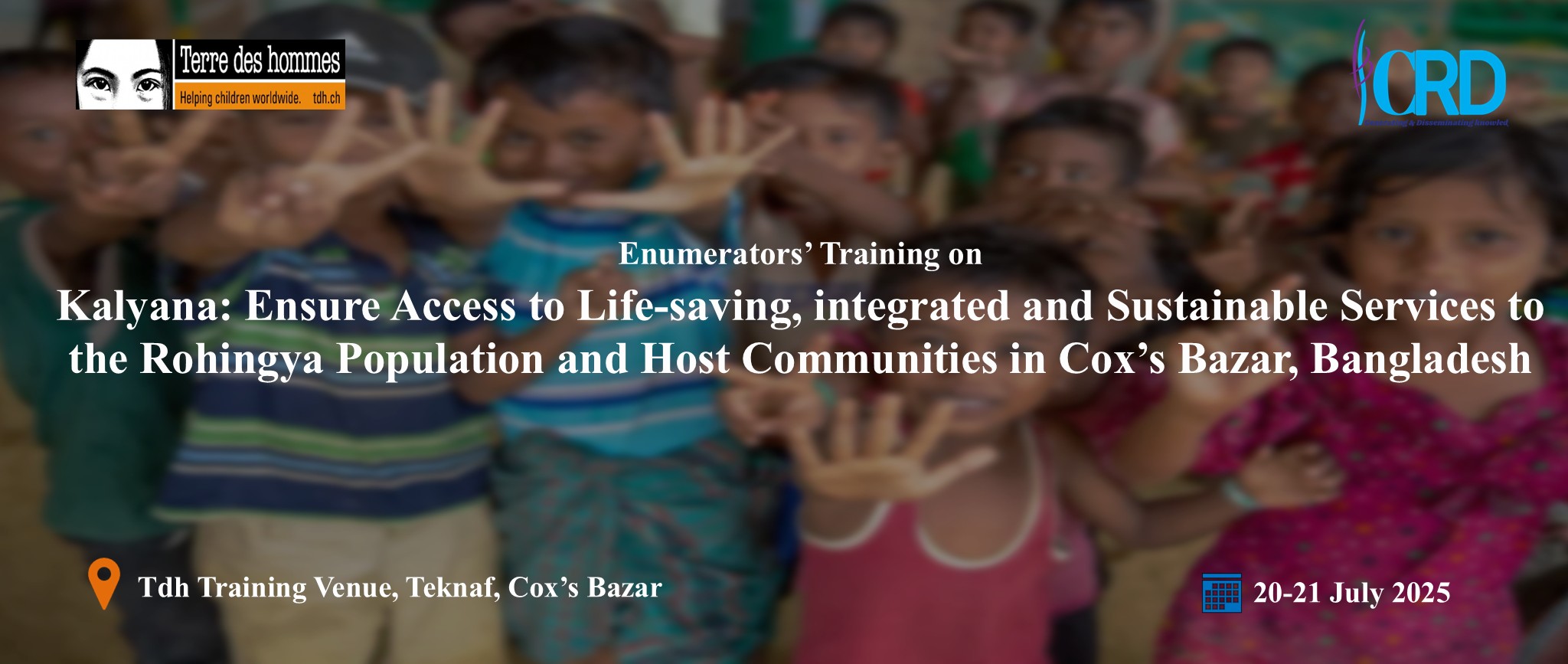Final Evaluation of “Kalyana: Ensure access to lifesaving integrated and sustainable services to the Rohingya population and host communities in Cox's Bazar District, Bangladesh” Project

Final Evaluation of “Kalyana: Ensure access to lifesaving integrated and sustainable services to the Rohingya population and host communities in Cox's Bazar District, Bangladesh” Project
Terre des Hommes (TdH) has been implementing the “Kalyana (Ensure Access to Life Saving Integrated and Sustainable Services to the Rohingya Population and Host Communities in Cox’s Bazar, Bangladesh” Project. This is a vital humanitarian initiative designed to deliver integrated, life-saving, and sustained services for both the Rohingya population and host communities in Cox’s Bazar. Launched in September 2022 and scheduled to conclude in August 2025, the project is in the final phase. Conducting the final evaluation is one of the important tasks in this phase. On this ground, CRD has been tasked with performing this evaluation.
Operating in Camps 26 and 27 and within the host communities of Nhilla Union, the Kalyana Project adopts a multi-sectoral approach to improve the safety, dignity, and resilience of vulnerable populations. Through interventions in health, WASH (Water, Sanitation, and Hygiene), and child protection, the project has worked to meet urgent needs while strengthening community-based systems of care and support.
As the project draws to a close, a comprehensive final evaluation will be conducted to assess its effectiveness, efficiency, relevance, and sustainability. The goal is to measure the achievement of project objectives and extract key lessons and best practices to guide future programming.
The evaluation will utilize a mixed-methods approach, combining quantitative and qualitative data collection to ensure robust and actionable insights. Special emphasis will be placed on cross-cutting themes, including:
- Maternal and child health
- Nutrition
- Access to WASH infrastructure
- Psychosocial support
- Gender-based violence prevention
- Child protection systems
- Community resilience in humanitarian contexts
This evaluation will offer evidence-based recommendations to enhance the impact and sustainability of similar interventions, ultimately contributing to more effective, inclusive, and dignified humanitarian responses.


